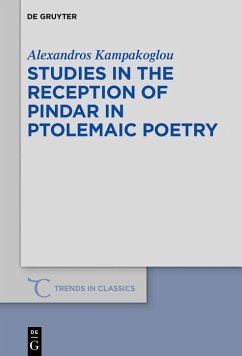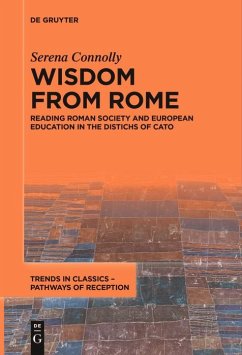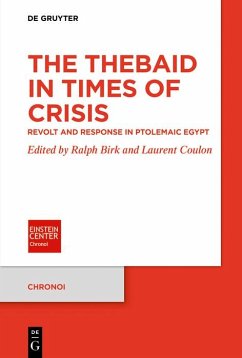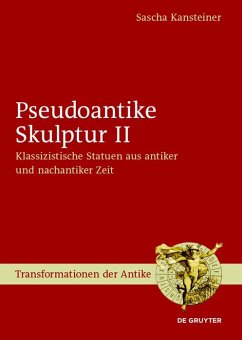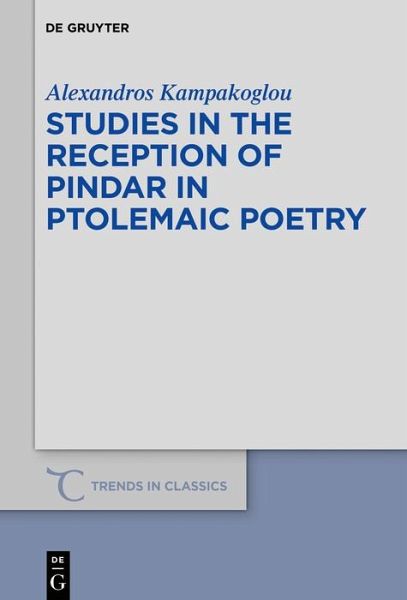
Studies in the Reception of Pindar in Ptolemaic Poetry (eBook, ePUB)
Versandkostenfrei!
Sofort per Download lieferbar
125,95 €
inkl. MwSt.
Weitere Ausgaben:

PAYBACK Punkte
63 °P sammeln!
Recent years have witnessed a revival of interest in the influence of archaic lyric poetry on Hellenistic poets. However, no study has yet examined the reception of Pindar, the most prominent of the lyric poets, in the poetry of this period. This monograph is the first book to offer a systematic examination of the evidence for the reception of Pindar in the works of Callimachus of Cyrene, Theocritus of Syracuse, Apollonius of Rhodes and Posidippus of Pella. Through a series of case studies, it argues that Pindaric poetry exercised a considerable influence on a variety of Hellenistic genres: ep...
Recent years have witnessed a revival of interest in the influence of archaic lyric poetry on Hellenistic poets. However, no study has yet examined the reception of Pindar, the most prominent of the lyric poets, in the poetry of this period. This monograph is the first book to offer a systematic examination of the evidence for the reception of Pindar in the works of Callimachus of Cyrene, Theocritus of Syracuse, Apollonius of Rhodes and Posidippus of Pella. Through a series of case studies, it argues that Pindaric poetry exercised a considerable influence on a variety of Hellenistic genres: epinician elegies and epigrams, hymns, encomia, and epic poetry. For the poets active at the courts of the first three Ptolemies, Pindar's poetry represented praise discourse in its most successful configuration. Imitating aspects of it, they lent their support to the ideological apparatus of Greco-Egyptian kingship, shaped the literary profile of Pindar for future generations of readers, and defined their own role and place in Greek literary history. The discussion offered in this book suggests new insights into aspects of literary tradition, Ptolemaic patronage, and Hellenistic poetics, placing Pindar's work at the very heart of an intricate nexus of political and poetic correspondences.
Dieser Download kann aus rechtlichen Gründen nur mit Rechnungsadresse in A, B, BG, CY, CZ, D, DK, EW, E, FIN, F, GR, HR, H, IRL, I, LT, L, LR, M, NL, PL, P, R, S, SLO, SK ausgeliefert werden.




